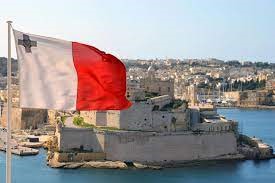“The question I find intriguing is whether a nation so extraordinarily endowed as the United States can overcome that arrogance of power which has afflicted, weakened, and, in some cases, destroyed great nations in the past … Power tends to confuse itself with virtue and a great nation is peculiarly susceptible to the idea that its power is a sign of God’s favour, conferring upon it a special responsibility for other nations – to make them richer and happier and wiser, to remake them, that is, in its own shining image.”
James William Fulbright (April 9, 1905 – February 9, 1995), an American academic, and statesman said this in his famous John Hopkins University speech in April 1966. For fulfilling what he called “the patriot’s duty of dissent” he was denigrated as being ‘Halfbright’.
He challenged the concept of national consensus when it was “interpreted to mean unquestioning support of existing policies”, serving to suppress differences rather than to reconcile them. In September 1943 the House of Representatives adopted the Fulbright Resolution, which supported international peacekeeping initiatives and encouraged the United States to participate in what became the United Nations in 1945. That brought Fulbright to national attention.
He embraced the core values of the UN intended to “save succeeding generations from the scourge of war, which twice in our lifetime has brought untold sorrow to mankind, and to reaffirm faith in fundamental human rights, in the dignity and worth of the human person, in the equal rights of men and women and of nations large and small …”
Senator Fulbright realised through experience that a more egalitarian, more cooperative world is out of bounds for those consumed by the arrogance of power. He dedicated his life to promoting “a foreign policy … intended quite literally to conserve the world-a world whose civilizations can be destroyed at any time if either of the great powers should choose or feel driven to do so. It is an approach that accepts the world as it is, with all its existing nations and ideologies, with all its existing qualities and shortcomings. It is an approach that purports to change things in ways that are compatible with the continuity of history and within the limits imposed by a fragile human nature.”
Fulbright called this foreign policy conservative in the tradition of Burke, Metternich and Castlereagh. He described them as statesmen who “profoundly mistrusted abstract ideas, and because they did not think themselves or any other men qualified to play God.”
Concluding his book ‘The Arrogance of Power’ Fulbright said: THERE ARE TWO AMERICAS….One is generous and humane, the other narrowly egotistical; one is self-critical, the other self-righteous; one is sensible, the other romantic; one is good-humoured, the other solemn; one is inquiring, the other pontificating; one is moderate, the other filled with passionate intensity; one is judicious and the other arrogant in the use of great power.”
He said “the United States must decide which of the two sides of its national character is to predominate: the humanism of Abraham Lincoln or the arrogance of those who would make America the world’s policeman.”
In his opinion it was tragic when the US chose the politics of war , in which diplomacy is the continuation of war by other means in which instead of seeking peace and justice, it reduces itself to “conjuring up “scenarios” of escalation and nuclear confrontation and “models” of insurgency and counter-insurgency.”
Earlier than most of the other American politicians he understood how wrong it was for the US to get embroiled in the Vietnam war which killed three million Vietnamese, 310,000 Cambodians, 62,000 Laotians and 58,220 US soldiers.
Fulbright discovered that it was simply not true that Ho Chi Minh was a Sino-Soviet “puppet” who wanted to overthrow the government of South Vietnam because his masters in Moscow and Beijing had told him to do so.
“No God-given right”
The US Secretary of Defence Robert McNamara also admitted a “profound ignorance of the history, culture, and politics” of Vietnam, as well as the personalities and habits of its leaders. The Former Minister of Vietnam Thach had told him: “Mr. McNamara, You must never have read a history book. If you had, you’d know we weren’t pawns of the Chinese or the Russians. McNamara, didn’t you know that? Don’t you understand that we have been fighting the Chinese for 1000 years? We were fighting for our independence. And we would fight to the last man. And we were determined to do so. And no amount of bombing, no amount of U.S. pressure would ever have stopped us.”
20 years after the end of the war, McNamara acknowledged: “We did not recognize that neither our people nor our leaders are omniscient… We do not have the God-given right to shape every nation in our image or as we choose.
In fact, more than 150 years after the U.S. Declaration of Independence, Vietnamese revolutionary Ho Chi Minh quoted that Declaration when declaring his country free from French colonial rule: “All men are created equal. They are endowed by their creator with certain inalienable rights; among them are life, liberty, and the pursuit of happiness.”
President Lyndon Johnson had believed that the United States could simply not be defeated by Vietnam, which he dismissed as a “raggedly-ass little fourth-rate country.”
Fulbright condemned the bombing of North Vietnam and appealed to the American political and military establishment, the press and the general public to think of the “millions of little children, sweet little children, innocent pure babies who love their mothers, and mothers who love their children, just like you love your son, thousands of little children, who never did us any harm, being slowly burned to death.”
He refused to see the world as a clash between good and evil where “our side was all virtue and our enemies were all evil who in justice could expect nothing after their fall but the righteous retribution of Virtue triumphant.”
Times 04 July 2025




